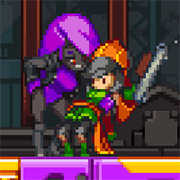|
As a judge I didn't want to drop any hints to what would please me, but I would suggest taking an old subtext. I've seen that Illuminati Youtube and it owns and it being in my mind will probably end up being a handicap whether I'm conscious of my bias while reading it or not.
|
|
|
|

|
| # ? Apr 29, 2024 02:43 |
|
I haven't read the illuminati page, and I'm not going to - so for the record everything I come up with will be mine. I'll try to do something interesting with it. I have a different definition of 'inside'.
|
|
|
|
I just saw Naked lunch. Amazing movie. Disregard my question from before, I know exactly how I want to write this.
|
|
|
|
Hbomberguy posted:I haven't read the illuminati page, and I'm not going to - so for the record everything I come up with will be mine. That is fine with me, but you better be honest or else I will send the plagiarism police after you. Also, there are plenty of non-illuminati conspiracy theories.
|
|
|
|
Alright, just sent in my essay. In case anyone's interested:quote:A Self-Centered Universe I think I had a harder time getting into the mindset this time around. In previous years I would have almost two pages of notes from my first viewing of the movie. This time I had maybe half a page. But once I figured out my angle it came a lot more naturally. Looking forward to reading everyone's essays!
|
|
|
|
When exactly is the deadline, in GMT?
|
|
|
|
Hbomberguy posted:When exactly is the deadline, in GMT? Well, I am ending it by midnight CST tonight, but realistically you will have a couple hours after the deadline until I get to a computer, and maybe even the morning if I drink too much since I am going out tonight. We only have a small handful of entries right now, so people should get working.
|
|
|
|
I have a passable first draft that needs to be cleaned up and footnoted, but otherwise I should have it in by deadline.
|
|
|
|
Fat Lou posted:Well, I am ending it by midnight CST tonight, but realistically you will have a couple hours after the deadline until I get to a computer, and maybe even the morning if I drink too much since I am going out tonight. Mine is mostly done but I got called two towns away to do a job and I probably won't be home until early morning. I should have it sent off by 9 AM Eastern, if that's OK.
|
|
|
|
precision posted:Mine is mostly done but I got called two towns away to do a job and I probably won't be home until early morning. I should have it sent off by 9 AM Eastern, if that's OK. I won't be awake by then. I can guarantee that.
|
|
|
|
Well poo poo, I was out most of yesterday when I was hoping to work on this so I'm not sure I'll get this done in time.
|
|
|
|
mobby_6kl posted:Well poo poo, I was out most of yesterday when I was hoping to work on this so I'm not sure I'll get this done in time. drat kids waiting till last minute to do their homework!
|
|
|
|
I have around 2 pages and it's almost finished, just need to put some finishing touches on it. But it's been election night here in Sweden so I haven't really been able to work on it today. But I'll finish it before 9 am cst (that's in 16 hours right?)
|
|
|
|
Sent. I'm glad now that the subtexts were shifted, "the ineffectiveness of nonviolent protest" would have been too easy for Under the Skin. But as it turns out, it totally is about how the US government was behind the crack cocaine epidemic.
|
|
|
|
VROOM VROOM posted:Sent. I'm glad now that the subtexts were shifted, "the ineffectiveness of nonviolent protest" would have been too easy for Under the Skin. But as it turns out, it totally is about how the US government was behind the crack cocaine epidemic. Good! I like your enthusiasm. Hopefully you will graduate at the top of your class.
|
|
|
|
I should have mine in within a couple hours.
|
|
|
|
|
I tried to send mine, but it says the email failed. What's the email again? I'll put mine here, just for posterity (and to prove I did it, if I can't get this email out):quote:BECOMING WAR: How We All Did 9/11
|
|
|
|
I just noticed too, the one in the OP is missing a letter, it's goonsubtextgame@gmail I'm guessing.
|
|
|
|
VROOM VROOM posted:I just noticed too, the one in the OP is missing a letter, it's goonsubtextgame@gmail I'm guessing. I just noticed that too. Thanks. Email sent!
|
|
|
|
I am most likely an idiot and it should be goonsubtextgame@gmail.com.
|
|
|
|
Insufficiently Advanced: Chicken Run as Anti-Reductionist Polemic by Quovak Film as a medium would not exist were it not for the leaps we have made in categorizing and rigorously defining scientific laws. Similarly, it is difficult to overstate the artistic gains made possible through adding color film and the recorded voice to our litany of filmmaker�s tools. Nonetheless, it is important to emphasize that the tools are not the message, and film (as well as other forms of expression) cannot thrive as merely showcases for technical feats. Chicken Run, a high-budget claymation film harkening back to the earliest special effects, accuses the industry of forgetting this message. The film argues that, by treating filmmaking as merely the sum of its parts, the modern studio system has restricted its artistry and ability to effect meaningful change. Only by rejecting this commercial, manufactured, derivative view can we return cinema to its artistic roots, equivalent not to technology or business but to magic itself. Chicken Run immediately establishes itself as a polemic against the reductionist views that art is a mechanical process, inevitably improved through increased efficiency or rigid formulas for success. Ginger is the ringleader of a group of chickens (read: artists) who live a well-ordered, penal existence at an egg farm. Their creative potentials are astounding�chickens are regularly seen knitting, theorizing, and hoping for a better life�but they are treated as no different from any other mechanistic asset on the farm. Their creations, not allowed to grow into the �miracle of life,� are merely inputs for a process aimed at increasing numbers on a spreadsheet. The chickens, bright orange and uniquely designed, are made subservient to grey and overpowering figures who value consistency and control over originality. When Ginger tries to step outside the boundaries her managers have set, she is forced into a literal box and referenced as an example for how the other chickens are not meant to behave. Ginger knows from the beginning that she wants to escape this mechanistic creative process, but her stance on how art ought to be wielded changes significantly over the film. In its first scene, she attempts to fend off her pursuers with a cheap gnome, but the kitsch mass-marketed symbol fails to have any effect. While many of the chickens are content to work within the status quo (Ginger�s point that they merely churn out eggs until their death is at one point met with �It�s a living�), the farm�s owners soon reveal the true nihilistic end of their approach. In the name of increased profits, the studio head (Mrs. Tweedy) puts technological gimmicks over creativity and restructures her artistic appropriation into a literal butchering of the creative form. After attempts at feeble imitation (such as chickens disguising themselves as a man), Ginger realizes that a true paradigm shift will be necessary to awaken the public (Mrs. Tweedy�s submissive and brainwashed husband, and the target audience for her products). She insists that the real cages are in their minds. Mrs. Tweedy�s system is inherently unstable. She aims to utterly destroy the creative potential of the farm�s chickens, with no regard for the long-term success of an industry built upon it. When her machine fails, she blames her husband (the dimwitted public) rather than the machine itself and demands to fix it with band-aid solutions rather than re-assessing her approach. She is never actually able to create what she dreams; both times chickens are shown within the machine, they are unable to provide the superior if destructive results she imagines must follow. The possibility that she could get more eggs by allowing her chickens more freedom (the grassy fields they yearn for) is never considered, and when they finally escape in the film�s last scenes she attempts to bring down their new approach out of spite. When she is ultimately buried by the end result of her schemes, she persists in directing her anger toward the viewing public, not the system as a whole. It is unthinkable that the very use of a formula itself, not merely a misjudged variable within it, could have failed to provide her with better results. Against this backdrop, an escaped circus rooster named Rocky enters the farm, offering a false hope of one form of escape. Rocky, it turns out, can �fly� (by being shot from a cannon), but he has underestimated his dependence on these systems and convinces the chickens he can teach them to fly organically. To Rocky, art is also not about magical creation (he has no eggs to offer, and thus no real possibility of creating something great) but nor is it about profit. For him, it�s about the ego, and Rocky ignorantly claims his independence (the American imagery is no doubt intentional) and experience allow him to conquer the system despite his lack of inspiration and equally reductionist approach. Rocky aims to teach flight through imitation, telling the chickens to flap and rotate in circles because he has seen other birds perform similar acts. By arranging tropes and hiding behind his position as �ideas man�, he perpetuates the myth that artistic expression is merely putting in grunt work to rearrange existing ideas in predictable ways. While Ginger is initially excited for Rocky�s independent take, she soon realizes it too is insufficient to change the status quo. It is important to realize that, within the narrative, Rocky�s teachings have absolutely no impact on the chickens� eventual escape. Disillusioned by his lack of immediate success, Rocky leaves the farm. While his exit is not directly shown, the implications of this are significant. The mere emotional force behind wishing to leave had a greater real-world impact than the most perfectly planned and coordinated attempts, reinforcing Ginger�s theory that the real cages are in their minds. This demonstrates that Rocky, and others, are capable of great things when they allow their interplay with the restrictions placed upon them to be a form of magic rather than trying to understand them in literal, scientific terms. When Rocky returns for the final escape, embodying deus ex machina, his preference for the magical over the reductionist allows him to serve a far more powerful role. In Rocky�s temporary absence, the true artists embrace a new plan: building a plane. While this may seem like a submission to the forces of technology, it is important to recognize their machinery is built from miscellaneous things around the farm such as discarded seatbelts, badminton birdies, and spools of thread, not from the rigid components the plans insist must be used. The chickens are building on earlier inspiration, but they are making it their own, and they allow the result to be greater than the sum of its parts. The ultimate plane is no committee-designed, purely mechanistic device, but a new creation which flaps its wings and commands a sense of life. That the individual chickens must pedal to keep it afloat demonstrates the continued role of the artist as an active creative force. That the stodgy rooster who previously shot down escape attempts and kept order for the Tweedies now finds great purpose and joy through his role in this flight is impossible to misunderstand. Throughout the film, Mr. Tweedy has become gradually more awakened by the inexplicable things he sees the chickens do, challenging the stupor that his wife (the studio) seeks to entrench and exploit. True artistic expression removes the wool from his eyes, and Ginger eventually launches a direct attack on the homogenized mass-produced consumption he represents. With tensions high, the chickens aim to escape in the plan despite noting that it�s not complete, accepting that the core idea and creativity involved outweighs the lack of polish. The film has made significant note of the Tweedies endlessly refining the slaughtering machine to no success, as well as showing the failure of Rocky's attempts to teaching flight through mere repetition, and it is here Chicken Run explicitly promotes true magical creativity as reaching greater heights than imitation and formulaic construction ever could. As the plane takes off, Mrs. Tweedy stows on board by hanging on a trail of Christmas lights. Ginger attempts to force her off, as she burdens their creative efforts with her insistence on making a return. It is here Ginger fully realizes the benefits of magical creation and casts off her dependence on the system. First, she attempts to cut the cord with scissors, a pale imitation of a technique others have used and dependent on tools she doesn�t understand. When this proves ineffective, she goads Mrs. Tweedy into swinging an axe and pretends to get beheaded, tucking her head underneath her wing. As Tweedy gloats, Ginger reveals her head once again and shows she is now holding both ends of the cord, severed by the swing of the axe, and as she lets go Tweedy plummets into the machine. Besides clearly showing how the studio system will destroy itself, this scene makes the equivalence between artistry and magic explicit. It is no accident that Ginger recreates the earliest magic trick ever recorded, in which the 28th century BCE magician Dedi severed and then reattached a bird�s head. Nor is the presence of baby chicks throughout the final scene merely a saccharine Hollywood ending, but a clear example of letting previously restrained creative efforts now blossom into life, the ultimate example of something greater than the sum of its parts. Without a belief in the miraculous power of artistic creation, the chickens would have continued a nihilistic existence, churning out homogenized creative efforts for an uncaring business only to be cast aside when they failed to show profitability. Without a willingness to accept adversity and the magical accidents of the creative process, the chickens� attempts to escape through imitation and routine would lead nowhere. By embracing the unpredictable adversity of the artistic process, however, and allowing the magical, fantastic results to emerge, they are able to resist the status quo and truly create. This message would have resonated with an early-2000s audiences who had just been exposed to The Phantom Menace, watching a premier example of magical creation become a manufactured, artificial product. It resonates even louder today as the traditional system, increasingly under threat, retreats further into gimmicks and manufactured success. That the creators followed up their polemic with a mass market CGI film should not undermine Chicken Run's intent.
|
|
|
|
Aaaaaand e-mail sent. I hope a google doc is okay, I got out of the habit of having a text editor on my computer after a while.
|
|
|
|
|
Sent! The ending got a bit rushed, hope it didn't turn out to bad.
|
|
|
|
Sent, and posted here for posterity:quote:Eleven Angry Apostates; The Moral Certainty of Religious Dogma in the Film "12 Angry Men"
|
|
|
|
I forgot. I'm sorry.  The crux of my argument was going to be that the vision of the future in I Am Legend is a direct result of the failure of sixties flower power. The Age of Aquarius is a new dark age.
|
|
|
|
I am now awake. The deadline is now. I will have everything updated and set to the two other judges asap.
|
|
|
|
Unfortunately I had to be sleeping or working while you were sleeping, so I'm sorry that this isn't happening this time. Which sucks because the movie/subtext combination was quite promising, maybe I'll finish and post it later.
|
|
|
|
Fat Lou posted:I am now awake. The deadline is now. I will have everything updated and set to the two other judges asap. Do we get some score or notes on what you thought, or will only the winners be announced?
|
|
|
|
Cakebaker posted:Do we get some score or notes on what you thought, or will only the winners be announced? Everyone's score will be posted. If the judges want to give out notes then they will. For me it will depend on how busy I am for the next few days.
|
|
|
|
Bit late but for the recordquote:
|
|
|
|
Thanks for posting this; it was my subtext and wasn't sure what direction someone would take it with Her. Brilliant job, mate. Thrilling to read. What sort of places did you take inspiration from, if I can ask?
|
|
|
|
Been reading through the submissions and goddamn guys, some of you are making this really hard for us.
|
|
|
|
Hbomberguy posted:Thanks for posting this; it was my subtext and wasn't sure what direction someone would take it with Her. Cheers for that, it was actually quite fun to sit with a bottle of wine and watch it with an agenda, we kept pausing it to riff about bits that seemed relevant. I know what you mean about wanting to see what people do with the stuff you threw in the pot though, it would be great if people posted what they have even after the deadline/if it's not finished, they are strangely fun to read.
|
|
|
|
If the guy who got assigned Naked Lunch didn't do his, I'd love to see someone else take a shot at it. Also, I think axleblaze got off pretty easy with his combo, but then again, so did I, so I can't really complain.
|
|
|
|
precision posted:If the guy who got assigned Naked Lunch didn't do his, I'd love to see someone else take a shot at it. I did it, haven't posted it in thread though. Here it is: quote:Naked Lunch and the concept of Skeletons Disguised as People
|
|
|
|
FAT LOU JUDGE THE PAPERS
|
|
|
|
|
It might just be me that's delaying things at this point. I'll try to get it done as soon as possible but I've had a bunch of poo poo crop up lately.
|
|
|
|
axleblaze posted:It might just be me that's delaying things at this point. I'll try to get it done as soon as possible but I've had a bunch of poo poo crop up lately. I haven't submitted my scores but I've only got two left to read. Your essays make really good bathroom lit.
|
|
|
|
The People demand resolution.
|
|
|
|

|
| # ? Apr 29, 2024 02:43 |
|
Vitamin P posted:The People demand resolution. I have been informed it will be in by tonight or tomorrow. Sorry about the wait.
|
|
|




















